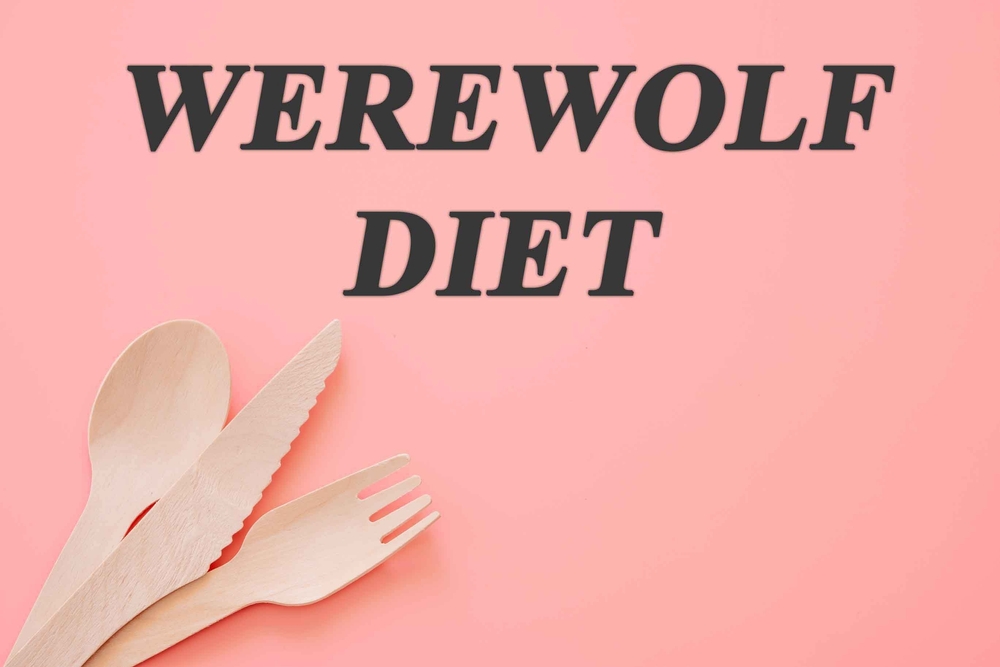Over the years, diet trends have come and gone, with some making a brief splash before fading into obscurity. But there are those bizarre diets that gained serious followers, leaving many wondering if they actually worked or just wreaked havoc on their health. In this article, we’ll look at 13 of the most outlandish diet trends that people tried and what happened to them. Spoiler: not all of them ended well.
1. The Cabbage Soup Diet

The Cabbage Soup Diet promises rapid weight loss by consuming nothing but cabbage soup for an entire week. While it’s low in calories, this extreme diet is incredibly unbalanced and lacks essential nutrients. People who tried it often reported feeling fatigued, irritable, and deprived. Though it can lead to quick weight loss, the results are unsustainable, and most individuals regain weight once they return to normal eating habits.
According to Healthline, the Cabbage Soup Diet is not a healthy, sustainable way to lose weight, and many people experienced rebound weight gain. Experts warn that severely restricting calories and food variety can slow down metabolism and harm overall health. The lack of protein and healthy fats can also lead to muscle loss, which is detrimental in the long run.
2. The Grapefruit Diet

The Grapefruit Diet is based on the belief that grapefruit can boost metabolism and aid in weight loss. This fad diet requires eating half a grapefruit with every meal, along with a limited intake of other foods. People who tried the diet initially experienced weight loss, likely due to the drastic reduction in calories. However, the weight loss was short-lived, and many faced nutritional deficiencies from the extreme restriction of food choices. According to the Cleveland Clinic, grapefruit can be part of a healthy diet but should not be relied upon as a sole means for weight loss
What’s even more concerning is that grapefruit can interact negatively with certain medications, including those for high blood pressure and cholesterol. Despite its early appeal, the diet proved unsustainable and ultimately led to frustration and a return to old eating habits. While grapefruit is healthy in moderation, relying on it alone for weight loss is a short-term fix that doesn’t provide long-term results.
3. The Baby Food Diet

Popularized by celebrities, the Baby Food Diet involves swapping regular meals for jars of pureed baby food. Advocates claim it leads to weight loss by reducing portion sizes and calorie intake. However, people who followed this diet quickly realized that it was far from satisfying. Eating pureed food can leave you feeling unsatisfied, and the lack of variety makes it difficult to maintain in the long run. According to WebMD, this diet is nutritionally inadequate for adults.
Additionally, baby food is designed for infants, not adults, and lacks many of the essential nutrients adults need for optimal health. People who tried this diet often experienced irritability, digestive issues, and nutrient deficiencies. The Baby Food Diet may have seemed like an easy way to lose weight, but it ultimately failed to provide sustainable results and left many hungry for real meals.
4. The Master Cleanse

The Master Cleanse involves drinking a mixture of lemon juice, maple syrup, cayenne pepper, and water for several days, essentially fasting while detoxifying the body. This diet promises quick weight loss and detoxification, but it’s incredibly restrictive and nutritionally inadequate. People who tried the Master Cleanse often felt fatigued, weak, and lightheaded due to the severe lack of protein and essential vitamins.
While proponents of the Master Cleanse claim it can rid the body of toxins, there’s no scientific evidence to support these detoxification claims. Most individuals who tried the diet experienced rapid weight loss, but it was mostly due to dehydration and muscle loss, not fat loss. Once the cleanse was over, many regained the weight they lost, making it a short-term solution that didn’t address long-term health or lifestyle changes. According to Verywell Fit, the Master Cleanse lacks essential nutrients and is not a sustainable weight loss solution.
5. The Cotton Ball Diet

Perhaps one of the most bizarre and dangerous diets out there, the Cotton Ball Diet involves eating cotton balls soaked in liquids like juice or smoothie mix. The idea is that the cotton balls take up space in your stomach, creating the sensation of fullness while consuming minimal calories. This diet is not only unhealthy but also potentially life-threatening, as swallowing cotton balls can cause digestive blockages.
People who tried this diet often experienced nausea, abdominal pain, and severe constipation. The cotton balls provide no nutritional value, and the lack of food leaves the body deprived of essential nutrients. This diet is a dangerous trend that should be avoided at all costs, as it can lead to serious health complications and even hospitalization.
6. The Cookie Diet

The Cookie Diet revolves around replacing regular meals with specially formulated cookies that are low in calories. These cookies are designed to curb hunger and provide a controlled amount of nutrition. While people did lose weight by eating fewer calories, many reported feeling unsatisfied and hungry throughout the day. The lack of variety and nutrients made it difficult to sustain.
In the long term, the Cookie Diet can lead to deficiencies in protein, healthy fats, and other vital nutrients. Although it may promote quick weight loss, it’s not a balanced or sustainable approach to healthy eating. People who tried this diet often ended up regaining the weight once they resumed regular eating habits.
7. The Blood Type Diet

The Blood Type Diet suggests that people should eat specific foods based on their blood type to improve health and weight loss. While it’s an interesting concept, there’s no scientific evidence to support the idea that blood type influences diet or health outcomes. Those who followed the diet experienced mixed results, with some feeling more energetic, but others struggled with the restricted food lists.
People who tried this diet often found it difficult to follow because it eliminates entire food groups based on arbitrary associations with blood types. The restrictive nature of the diet can lead to nutrient deficiencies, making it unsustainable in the long term. Ultimately, the lack of scientific backing makes the Blood Type Diet an unproven and questionable approach to health.
8. The Alkaline Diet

The Alkaline Diet is based on the idea that eating foods that promote an alkaline environment in the body can lead to better health, including weight loss and disease prevention. Followers avoid acidic foods like meat, dairy, and processed foods, focusing instead on fruits, vegetables, and alkaline-promoting foods. While it encourages healthy foods like vegetables, it also restricts many food groups that are important for balanced nutrition.
Those who tried the Alkaline Diet often found it challenging to stick to, especially due to the extreme restrictions. While there is some evidence that a diet rich in fruits and vegetables is beneficial, there is no solid evidence supporting the idea that altering the body’s pH through diet has any significant health benefits. The Alkaline Diet may lead to weight loss in the short term, but it’s not sustainable and doesn’t address long-term nutritional needs.
9. The Raw Food Diet

The Raw Food Diet is based on the belief that eating only raw foods—like fruits, vegetables, nuts, and seeds—can improve health and lead to weight loss. While raw foods are undeniably healthy, this diet is often restrictive and difficult to follow. Those who followed the Raw Food Diet faced challenges with food preparation and dining out, as it requires avoiding cooking methods that many people rely on.
People on the Raw Food Diet often reported weight loss initially, but they also experienced fatigue and digestive issues due to the lack of variety and protein. Additionally, some essential nutrients like vitamin B12 and iron are harder to obtain from a raw, plant-based diet. While eating more raw foods can be beneficial, eliminating cooked food can be impractical and may lead to nutrient deficiencies.
10. The “Air Diet”

The Air Diet is an extreme and absurd diet where followers are encouraged to “eat” air by imagining they are eating food. Yes, you read that right—people pretended to eat air to “satisfy” their hunger. Of course, this diet is completely unrealistic and can cause serious psychological harm, as it encourages starvation and a distorted relationship with food.
Those who tried the Air Diet were, unsurprisingly, malnourished and psychologically stressed. This extreme approach to weight loss can lead to starvation, malnutrition, and even eating disorders. The Air Diet is not just ineffective; it’s dangerously harmful to both mental and physical health.
11. The Fasting Mimicking Diet (FMD)

The Fasting Mimicking Diet is designed to trick the body into thinking it’s fasting while still allowing some food intake. The diet involves a very low-calorie, high-fat, and low-carbohydrate intake for several days. It’s based on the idea that fasting can promote cellular repair and longevity. While there is some research backing intermittent fasting, FMD is difficult to maintain and can lead to nutrient deficiencies if done too frequently.
People who tried the FMD experienced rapid weight loss but also faced challenges with hunger and irritability. While it can promote short-term weight loss and health benefits, the long-term sustainability and safety of the diet are still debated. Those interested in fasting for health reasons should approach it with caution and consider safer, more balanced options.
12. The Werewolf Diet

The Werewolf Diet, also known as the Lunar Diet, is based on the belief that the phases of the moon can influence the body’s ability to lose weight. Followers of this diet fast during certain phases of the moon, believing that the gravitational pull of the moon affects metabolism. While it’s an interesting concept, there’s no scientific evidence linking lunar phases to weight loss.
Those who tried the Werewolf Diet often found themselves hungry and frustrated, as fasting according to the lunar calendar was impractical and didn’t lead to significant weight loss. This diet is based on pseudoscience, and while the moon is a fascinating subject, its effects on human metabolism are not supported by research. Like many fad diets, it offers short-term results but is not sustainable in the long run.
13. The Lemon Detox Diet

Similar to the Master Cleanse, the lemon detox diet involves drinking a lemon-based concoction, often with maple syrup and cayenne pepper, for several days. While it may lead to initial weight loss, it lacks essential nutrients and can cause fatigue, irritability, and dehydration.
Long-term use of this detox may result in nutrient deficiencies and weakened immune function. It is not a sustainable or healthy way to lose weight, and people who try it often regain the weight quickly.
Natasha is a seasoned lifestyle journalist and editor based in New York City. Originally from Sydney, during a stellar two-decade career, she has reported on the latest lifestyle news and trends for major media brands including Elle and Grazia.


